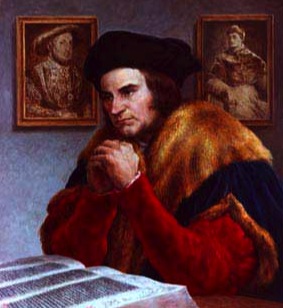A Brief Colonial History Of Ceylon(SriLanka)
Sri Lanka: One Island Two Nations
A Brief Colonial History Of Ceylon(SriLanka)
Sri Lanka: One Island Two Nations
(Full Story)
Search This Blog
Back to 500BC.
==========================
Thiranjala Weerasinghe sj.- One Island Two Nations
?????????????????????????????????????????????????Sunday, February 26, 2017
Subtle Clues & Hints Given By Thomas More About The Island Of Utopia: Part XI

By Laksiri Fernando –February 26, 2017
This short chapter is about three letters which were included in the initial publications of Thomas More’s Utopia as Preface. The importance of this chapter is its link to the main argument of the book, “Thomas More’s Socialist Utopia and Ceylon (Sri Lanka),”
and the concluding chapter summing up and expanding on the main
argument. Otherwise, this chapter does not present any details about his
‘treatise’ on Utopia. If any reader wishes to go through the original
letters, they are undoubtedly humorous and enjoyable reading. The text
of Utopia published by Wordsworth Classics of World Literature (1997) gives those interesting letters.
In the last letter, ostensibly referring to a critic, that ‘some of the
details of the Island are absurdities,’ More says, ‘if he were adding
fiction to reality, then he would have given clues for the scholars to
find the truth about the Island and its details.’ There he was actually
meaning the opposite, as he has been doing in many occasions throughout
the book. That is why we should take his clues and hints seriously.
The publication link to the original book is: https://www.createspace.com/4688110
WHAT IS REVEALED IN THE LETTERS?
IN THE INITIAL publications of Utopia, there were three letters
included, two of which Thomas More wrote to Peter Giles, and the other
one by Peter Giles to Jerome Busleyden. These letters confirm that the
idea of Utopia was conceived in Antwerp, and several others also were
involved in the conceptualization of the book. Antwerp is the major port
city of Flanders (a province of present day Belgium), a stopover/home
to many travelers of that time. This is a major reason to speculate that
they came across a travel manuscript. A brief review of these letters
here reveals clues to unravel the dilemma of the Island and the
character of Raphael Hythloday. The letters also shed light on several
other matters important in understanding the circumstances under which
the book was written.
The main thrust of the letters was to assure the readers that the Island
that they were talking about is real and the person who related the
information, Raphael Hithloday, is also real. These claims were
considered as literary devices by many reviewers. In subsequent
translations, these letters for some reason were dropped. Therefore,
these do not appear in Part II of this book as the manuscript that was
used for that purpose does not contain these letters. However, these
letters taken from other sources shed light on the nature of the
discourses presented in Utopia and also the speculation of the actual island of Utopia.
The first letter was written by Thomas More from London to Peter Giles
in Antwerp. The letter begins by apologizing for the delay in sending
the manuscript for printing.
“I am almost shamed, right well-beloved Peter Giles, to send this
book of the Utopian commonwealth, well-nigh after a year’s space, which I
am sure you looked for within a month and a half.”[1]
He admits that there was no cause for the delay as Master Raphael has
rather eloquently related the story of Utopia and the preceding
discourses in Greek and what he had only to do was to write them in
simple and straightforward Latin. Then what delayed the sending of the
‘Booke’ was his other work. Apart from his heavy official work as a
lawyer and a judge and many more, he says, “For when I come home, I must
communicate with my wife, chat with my children, and talk with my
servants.” These are necessary things that one has to do at home or
otherwise, “a man will be a stranger in his own house.”
It is undoubtedly an interesting letter which gives a humane flair to the whole work of Utopia.
Moreover, it is also a vindication of what he says about the family
life in the island of Utopia. There is congruence and harmony between
what he believed in private life and what he discoursed in Utopia through a real or an imaginary island. It is also humorous. He was so occupied in the house, after coming back from work.


